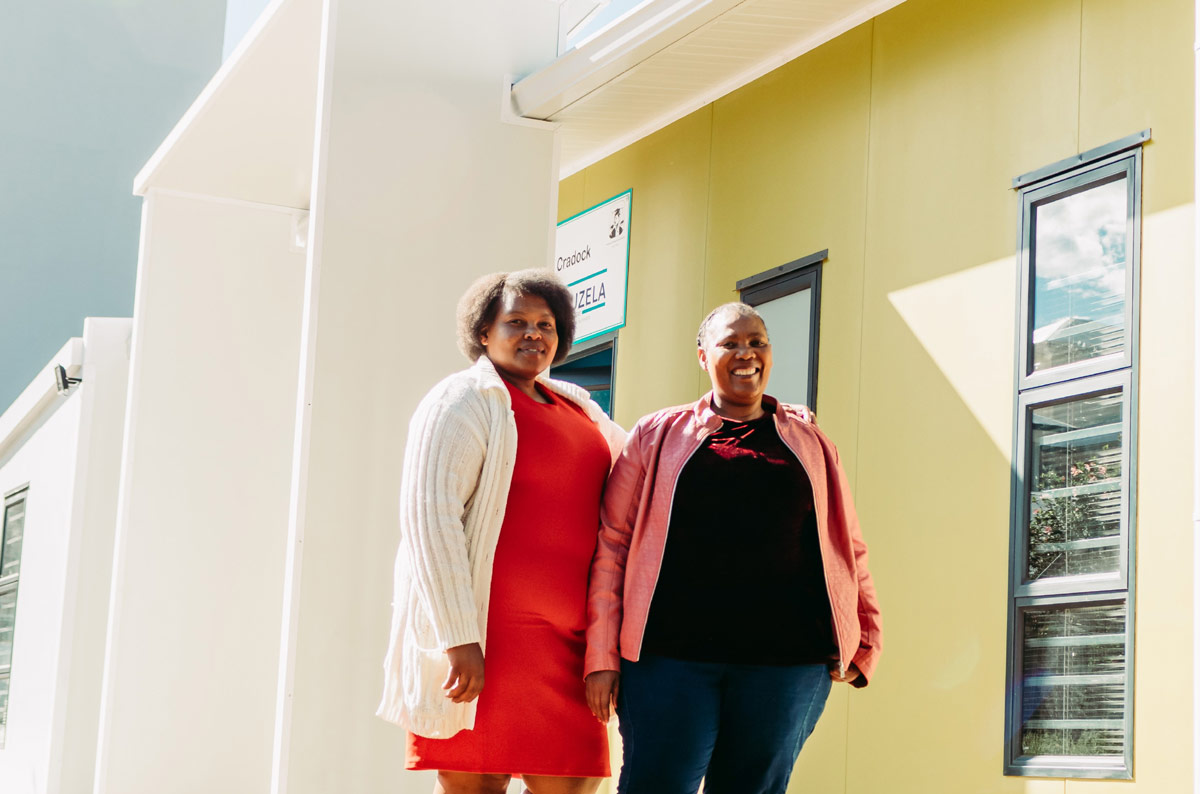SPAR Supports GBV Care Centre in rural Eastern Cape
18 April 2024

Two of the Thuthuzela Care Centre key members; Anela Nontso, left, and victim assistant officer Ntombisikile Sam. Photo: Full Stop Communications
The opening of Cradock’s first Thuthuzela Care Centre for victims of gender-based violence marks a significant milestone in the fight against the scourge in rural Eastern Cape.
Its launch on March 8 fittingly coincided with International Women’s Day and was celebrated by a host of donors and community members.
More than 60 Thuthuzela centres, which are led by the National Prosecuting Authority with the support of SPAR, are attached to hospitals across the country.
Here, survivors of rape and other sex crimes are offered medical and psychological care as well as potential justice for the attacks against them.
With role-players like medical practitioners, first-responders, police and social workers all under one roof, there is no need for victims to repeat accounts of their ordeal.
The Cradock centre is the third in the Eastern Cape, with the others located at Dora Nginza in Gqeberha and the Queenstown Hospital in Komani.
The new branch is the first in the province to be housed in its own building. Up until this point, the centres have been established within hospitals themselves.
NPA prosecutor Linda le Roux said three years of research and planning had gone into developing the facility. Factors such as the need, prevalence of GBV cases in that area and workload of the regional courts were considered.
Advertising manager for SPAR in the province, Roseann Shadrach, said the fight against GBV in all its forms was one they took very seriously.
She urged victims to recognise that they were not alone and to come forward as Thuthuzela offered a way forward.
“SPAR takes a highly proactive stance in the protection of women and children,” Shadrach said.
“Last year we supported the makeover of the waiting and intermediary rooms at the High Court in Gqeberha to ease the fears of children when testifying in harrowing court cases.”
These initiatives were making a tangible difference in the fight against violence family violence, she said.
According to crime statistics, the Cradock police station reported 26 sexual offences, 21 rapes and four sexual assaults between October and December last year.
Le Roux said although gender-based violence was not region-specific, one of the great challenges in rural areas was that victims could seldom rely on the support of NGOs specialising in physical and sexual offences.
“In this instance there were no NGOs,” she said.
She explained that a lot of thought had gone into the layout of the “beautiful” facility.
“This is a top-notch centre. You can see the designers wanted to show victims that they are important and loved.
“It is literally next to the casualty ward at Cradock Hospital so, if someone is badly injured, they can be treated right there.”
The Cradock centre is serviced by a senior state prosecutor and chief prosecutor, meaning that cases will be dealt with efficiently.
Le Roux said standalone centres in hospital precincts were the way forward for future Thuthuzela facilities.
“Thanks to the private sector we are showing that we are not only dependent on government to tackle GBV,” she said.
“We are taking one another’s hand to make a difference.”